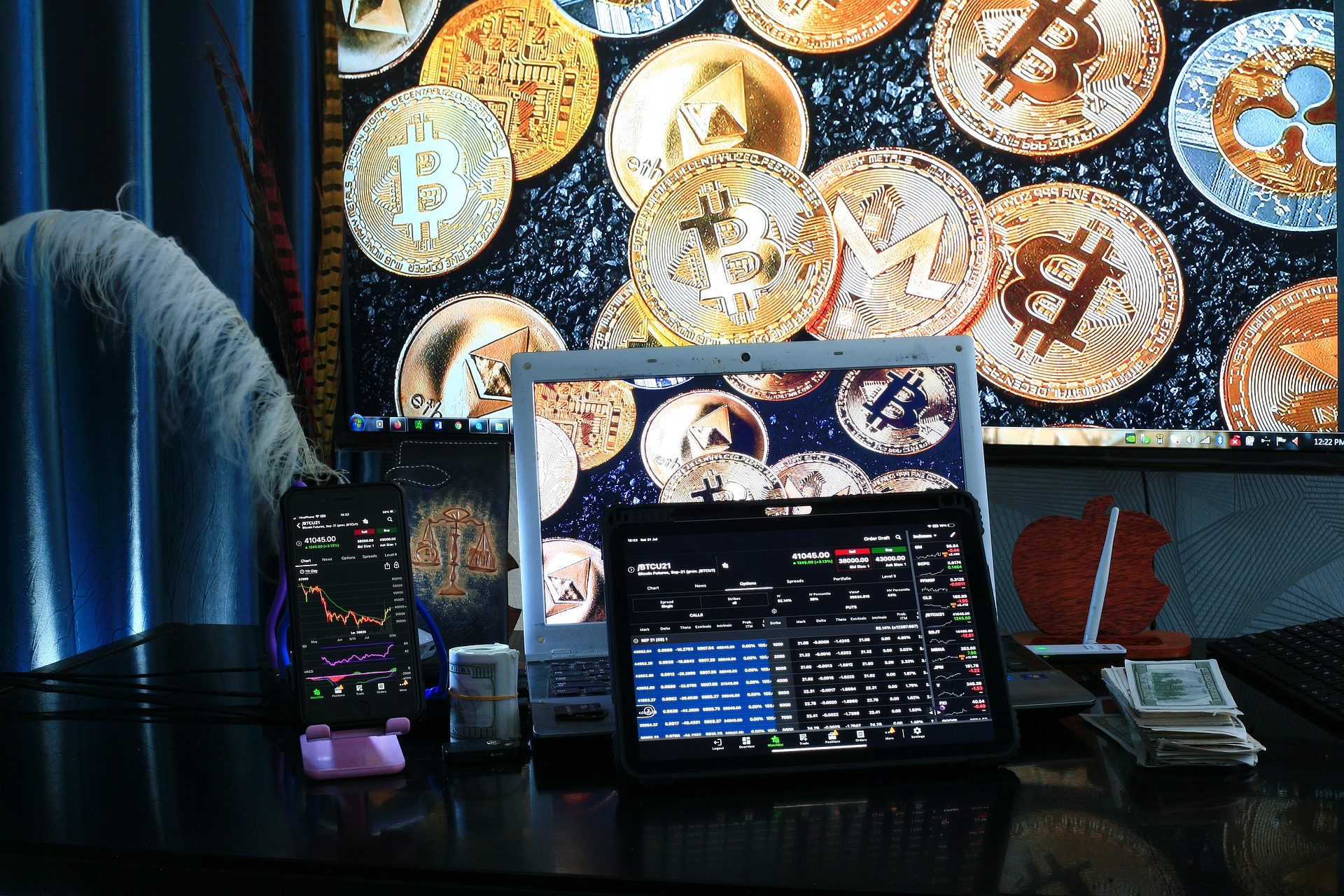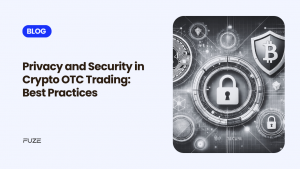The Middle East is witnessing a surge in cryptocurrency adoption, driven by factors like rising oil prices and increasing internet penetration. For High Net Worth Individuals (HNIs) and businesses dealing with large crypto volumes, traditional crypto exchanges might not be the most suitable option. This is where Over-the-Counter (OTC) crypto trading platforms come into play.
Unlike exchanges where buy and sell orders are displayed publicly, OTC platforms act as intermediaries, facilitating direct trades between counterparties. This allows for three prominent advantages, particularly relevant to HNIs and businesses in the Middle East:
- OTC trades occur privately, away from the public order book. This is crucial for HNIs and businesses who may not want their large transactions to influence market prices.
- Large OTC trades can potentially negotiate better rates compared to exchange prices, especially for lesser-known tokens with lower liquidity.
- Reputable OTC platforms prioritize KYC (Know Your Customer) and AML (Anti-Money Laundering) compliance, ensuring secure and transparent transactions.
💡Data Spotlight
The UAE is a leader in crypto adoption, with 72% of crypto users there invested in Bitcoin. By the end of 2024, Bitget Research estimates that the daily number of active crypto traders in the Middle East will reach 700,000.
Source
Choosing the right OTC platform
The OTC landscape isn’t monolithic. Choosing the right OTC platform hinges on individual needs and risk tolerance. Brokerages offer a safe and secure environment with expert guidance, while marketplaces provide greater control but require more caution. Direct trading platforms are more suitable for sophisticated investors comfortable with counterparty risk assessment.
Here’s a breakdown of the prevalent types of OTC platforms:
- Brokerages: These act as traditional intermediaries, matching buyers and sellers for a commission. They offer expertise, market insights, and secure execution.
- Marketplaces: These platforms function more like anonymous bulletin boards, where users post buy and sell orders and connect directly if there’s a match. While offering greater control, they might require more due diligence on counterparties.
- Direct Trading Platforms: These platforms connect high-volume investors directly with each other, facilitating peer-to-peer transactions with minimal intervention. They may not be the best option for businesses.
Selecting the right OTC platform is critical for a secure and successful trading experience. Look for platforms with a proven history of successful transactions and a strong presence in the region. Ensure the platform supports the cryptos you intend to trade.
OTC platforms often have minimum trade sizes, catering to high-volume transactions. Choose a platform with minimums aligned with your trading needs. Select a platform offering payment methods convenient for you, such as wire transfer or local bank deposits in AED, SAR, or other regional currencies.
Make sure to thoroughly evaluate the platform’s security measures, including two-factor authentication, secure storage of user funds, and robust KYC/AML procedures. Also check that the platform has responsive and knowledgeable customer support, which is essential for resolving any issues that might arise during the trading process.
Step-by-step guide to using OTC crypto trading platforms
I. Setting up an account
The registration process on an OTC platform typically involves providing essential information and verifying the identity of the business and its representatives. This verification process ensures compliance with anti-money laundering (AML) and know-your-customer (KYC) regulations. Businesses must prepare to submit relevant documents, such as corporate registration details and identification for authorized signatories.
Ii. Executing trades
Initiating and completing a trade on an OTC platform involves several steps.
- First, businesses need to communicate their trade requirements to their account manager, who will then negotiate terms with potential counterparties.
- Once an agreement is reached, the platform facilitates the trade execution at the agreed price.
- It is important to understand the pricing mechanisms and fee structures associated with OTC trades, as these can vary significantly between platforms.
Iii. Post-trade settlement
After a trade is executed, the settlement process begins. OTC platforms handle settlements efficiently, ensuring that the assets are transferred securely between parties. Businesses should maintain detailed transaction records for reporting and compliance purposes. Proper record management also aids in tracking performance and making informed future trading decisions.
Compliance and regulatory considerations
Navigating the regulatory landscape is essential for businesses engaged in OTC crypto trading. Key Middle Eastern countries have varying regulations regarding cryptocurrency transactions. For example, the United Arab Emirates has established clear guidelines for crypto businesses, while Saudi Arabia maintains stricter controls. Understanding these regulations helps businesses operate legally and avoid potential penalties.
To ensure compliance, businesses must stay informed about local laws and implement robust AML and KYC procedures. Regular audits and adherence to reporting requirements are necessary to maintain regulatory compliance. Partnering with a knowledgeable legal advisor or compliance officer can significantly aid in navigating the complex regulatory environment.
The regulatory landscape for cryptocurrencies is continuously evolving. Businesses must stay updated with any changes to ensure ongoing compliance. This involves regularly reviewing regulatory updates, attending industry conferences, and engaging with regulatory bodies. Proactive adaptation to new regulations minimizes legal risks and maintains the integrity of trading operations.
Risk management and best practices
OTC trading, like any financial activity, comes with inherent risks. Common risks include counterparty default, market volatility, and regulatory uncertainties. To mitigate these risks, businesses should conduct thorough due diligence on counterparties, use hedging strategies to manage market exposure, and stay informed about regulatory changes.
Adopting best practices is crucial for secure and efficient trading. Using escrow services ensures that funds are only released once both parties fulfil their obligations, reducing counterparty risk. Implementing multi-signature wallets enhances security by requiring multiple approvals for transactions. Additionally, regular security audits and robust cybersecurity measures protect against potential threats.
Conclusion
The cryptocurrency market offers a spectrum of options, with traditional exchanges for everyday investors and OTC platforms for businesses seeking an efficient and personalized approach. As the market evolves, both accessibility and discretion will play crucial roles. Understanding the specific types of OTC platforms and their strengths will allow businesses to make informed decisions based on their needs and risk tolerance.
To learn more about how Fuze can help you with your business payment needs, write to us at [email protected] or get started with your first payment here!







